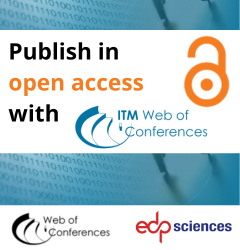Accueil / Calendrier de conférences / Informatique / Calcul scientifique et science des données / Allemagne
Conférences > Informatique > Calcul scientifique et science des données > Allemagne
Sélecionner un pays
Allemagne (9) Brésil (1) Canada (4) Chine (1) Danemark (1) Espagne (1) France (3) Italie (7) Mexique (2) Pologne (1) Royaume-Uni (4) États-Unis (9)
1
Machine Learning for Science: Mathematics at the Interface of Data-driven and Mechanistic Modelling
11 jui 2023 - 17 jui 2026 • Oberwolfach, Allemagne
Identifiant de l'évènement:
1494860
2
Dagstuhl-Seminar — Research Software Engineering: Bridging Knowledge Gaps
14 avr 2024 - 19 avr 2024 • Schloss Dagstuhl, Wadern, Allemagne
Identifiant de l'évènement:
1566014
Page web:
3
Dagstuhl-Seminar — Computational Metabolomics: Towards Molecules, Models, and their Meaning
28 avr 2024 - 03 mai 2024 • Schloss Dagstuhl, Wadern, Allemagne
Identifiant de l'évènement:
1566032
Page web:
4
Fast and Efficient Python Computing School
19 aou 2024 - 23 aou 2024 • Aix-la-Chapelle, Allemagne
Identifiant de l'évènement:
1613628
Page web:
5
Developers Workshop PyHEP.dev
26 aou 2024 - 30 aou 2024 • Aix-la-Chapelle, Allemagne
Date limite de soumission des résumés:
25 jui 2024
Identifiant de l'évènement:
1613541
Page web:
6
Dagstuhl-Seminar — Statistical and Probabilistic Methods in Algorithmic Data Analysis
22 sep 2024 - 27 sep 2024 • Schloss Dagstuhl, Wadern, Allemagne
Identifiant de l'évènement:
1589493
Page web:
7
Dagstuhl Research Meeting — A long-term strategy for NFDI for DataScience and Artificial Intelligence
28 oct 2024 - 29 oct 2024 • Schloss Dagstuhl, Wadern, Allemagne
Identifiant de l'évènement:
1566240
Page web:
8
Dagstuhl-Seminar — Graph Algorithms: Distributed Meets Dynamic
17 nov 2024 - 22 nov 2024 • Schloss Dagstuhl, Wadern, Allemagne
Identifiant de l'évènement:
1589412
Page web:
9
Data Assimilation: From Mathematical and Statistical Foundations to Applications
23 fév 2025 - 28 fév 2025 • Oberwolfach, Allemagne
Identifiant de l'évènement:
1605176
Conference-Service.com met à la disposition de ses visiteurs des listes de conférences et réunions dans le domaine scientifique. Ces listes sont publiées pour le bénéfice des personnes qui cherchent une conférence, mais aussi, bien sûr, pour celui des organisateurs. Noter que, malgré tout le soin que nous apportons à la vérification des données entrées dans nos listes, nous ne pouvons accepter de responsabilité en ce qui concerne leur exactitude ou étendue. Pensez donc à vérifier les informations présentées avec les organisateurs de la conférence ou de la réunion avant de vous engager à y participer!
Y'a pas de suivi | Y'a pas de pop-ups | Y'a pas d'animations
Dernière mise à jour: 4 avril 2024



